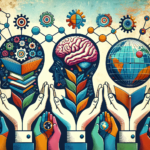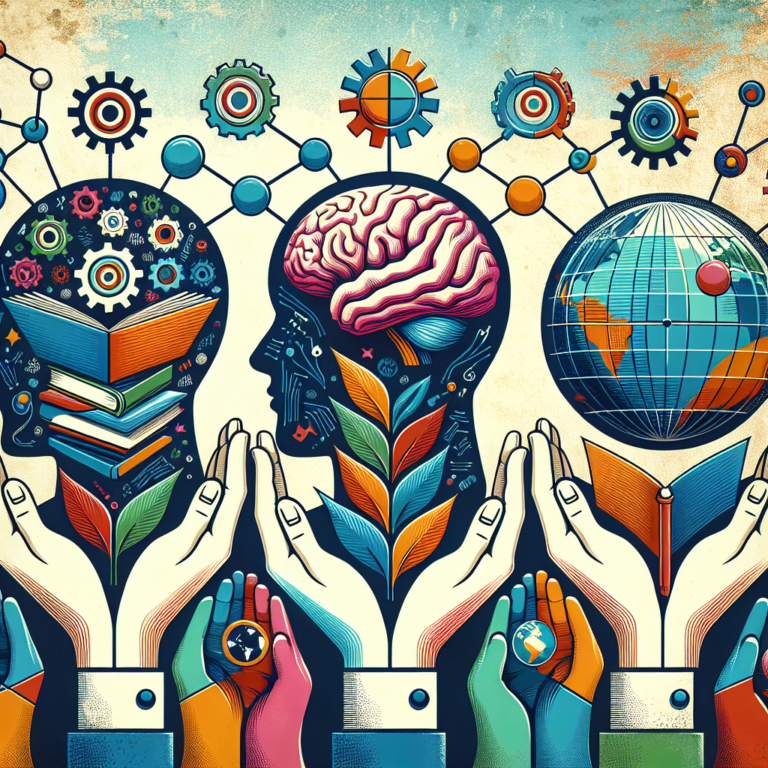
Introduction
In a world increasingly aware of mental health issues, the intersection of neuropsychology and mental health has never been more crucial. As we strive to understand the brain’s complexities, we uncover connections that can redefine how we approach mental health treatment. The phrase “Neuropsychology and Mental Health: Bridging the Gap” encapsulates this journey towards holistic understanding and better therapeutic outcomes. This article explores the intricate relationship between neuropsychology and mental health, presenting unique insights, case studies, and actionable strategies to enhance well-being.
Understanding Neuropsychology
What is Neuropsychology?
Neuropsychology is a specialized field that examines the relationship between the brain and behavior. It integrates principles from psychology, neurology, and cognitive science to provide a deeper understanding of how brain structures influence cognitive functions such as memory, attention, and emotion regulation.
The Brain’s Role in Mental Health
The brain is not just a biological organ; it acts as the command center for our thoughts, emotions, and actions. It processes information, manages our responses, and influences our mental health. Neuropsychology helps us understand these processes and how dysfunctions can lead to various mental health disorders.
The Link Between Neuropsychology and Mental Health
Cognitive Functions and Disorders
Neuropsychology provides insights into cognitive functions that are often affected in mental health conditions. Disorders such as depression, anxiety, and schizophrenia are linked to specific brain dysfunctions. For instance:
- Depression: Studies show that alterations in the prefrontal cortex can lead to impaired decision-making and emotional regulation.
- Anxiety Disorders: Neuroimaging reveals hyperactivity in the amygdala, which is responsible for the fear response.
Real-World Application: Case Studies
Let’s delve into some real-world case studies to illustrate how neuropsychology and mental health are interconnected:
Case Study 1: The Impact of Traumatic Brain Injury
Background: A 30-year-old male suffered a traumatic brain injury (TBI) following a sports accident.
Findings: Neuropsychological assessment indicated deficits in attention, memory, and emotional regulation.
Outcome: Through targeted cognitive rehabilitation and psychotherapy, the individual saw significant improvement in emotional stability and cognitive function. This case highlights how neuropsychological evaluations can guide therapeutic interventions in mental health.
Case Study 2: Addressing Depression Through Neurofeedback
Background: A 27-year-old female presented with severe depression resistant to medication.
Findings: Neurofeedback sessions indicated abnormalities in the brain waves associated with emotional regulation.
Outcome: After several sessions targeting these abnormalities, she reported a significant reduction in depressive symptoms. This case underscores the potential of neuropsychological techniques in bolstering mental health.
Bridging the Gap: Strategies for Integration
Now that we’ve explored the connection, how do we actually bridge the gap between neuropsychology and mental health?
1. Comprehensive Neuropsychological Assessments
Engaging in thorough assessments not only identifies cognitive deficits associated with various mental health disorders, but they guide targeted therapeutic interventions.
| Assessment Type | Purpose |
|---|---|
| Standardized Tests | Measure cognitive functioning |
| Functional Assessments | Assess daily living skills |
| Behavioral Observations | Observe emotional and behavioral responses |
2. Cognitive Rehabilitation Programs
These programs focus on enhancing cognitive functions through structured activities, emphasizing a personalized approach based on each individual’s unique neuropsychological profile.
3. Integrated Treatment Modalities
Combining pharmacological treatments with neuropsychological therapy offers a broader approach. For example, complementing medication for anxiety with cognitive behavioral therapy (CBT) can lead to better outcomes.
4. Public Awareness and Education
Increasing awareness about the importance of neuropsychology in mental health can foster a more supportive environment for those seeking help.
5. Collaborative Care Models
Encouraging collaboration between neuropsychologists, psychiatrists, and therapists ensures a holistic approach that addresses both biological and psychological aspects.
Enhancing Mental Health Through Neuropsychology
Mindfulness and Brain Function
Research shows that mindfulness practices can positively impact brain functioning. Regular mindfulness can enhance emotional regulation, reduce stress, and improve overall mental health.
The Future of Neuropsychology and Mental Health
As the field of neuropsychology continues to evolve, the integration of technology, such as brain imaging and artificial intelligence, may lead to even greater insights into mental health. Virtual reality therapies are being explored to treat phobias and PTSD, bridging more gaps between our understanding of the brain and effective mental health interventions.
Conclusion
The interplay of neuropsychology and mental health is profound and transformative. By understanding how brain functions shape our emotional and cognitive experiences, we can develop more effective treatment strategies that are holistic and personalized. As we continue to bridge the gap between these fields, we pave the way for a future where mental health care is as innovative as it is compassionate. Remember, seeking help is a sign of strength, and with the right resources, a fulfilling life is within reach.
FAQs Section
1. What is the role of neuropsychology in treating mental health disorders?
Neuropsychology provides insights into how brain dysfunction can affect behavior and cognition, enabling tailored treatment strategies that address these specific issues.
2. Can cognitive rehabilitation help individuals with depression?
Yes, cognitive rehabilitation can improve functioning and emotional regulation, making it a valuable component in treating depression.
3. How does mindfulness impact the brain?
Mindfulness practices can enhance brain structure and function, leading to improved emotional regulation and reduced stress.
4. What types of assessments are used in neuropsychology?
Common assessments include standardized tests, functional assessments, and behavioral observations that gauge cognitive and emotional functions.
5. How can I find a neuropsychologist?
Consulting with a healthcare provider or searching through professional directories can assist in locating a qualified neuropsychologist for assessment and treatment.
By harnessing the insights from neuropsychology into mental health, we can build a future where individuals achieve their fullest potential mentally, emotionally, and socially.















